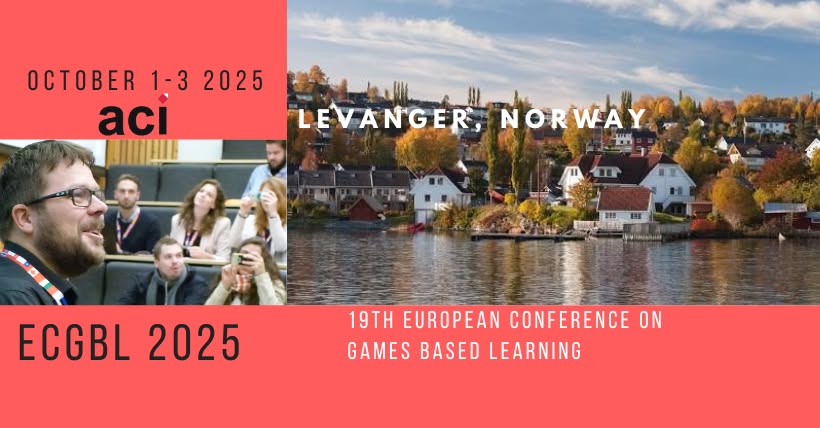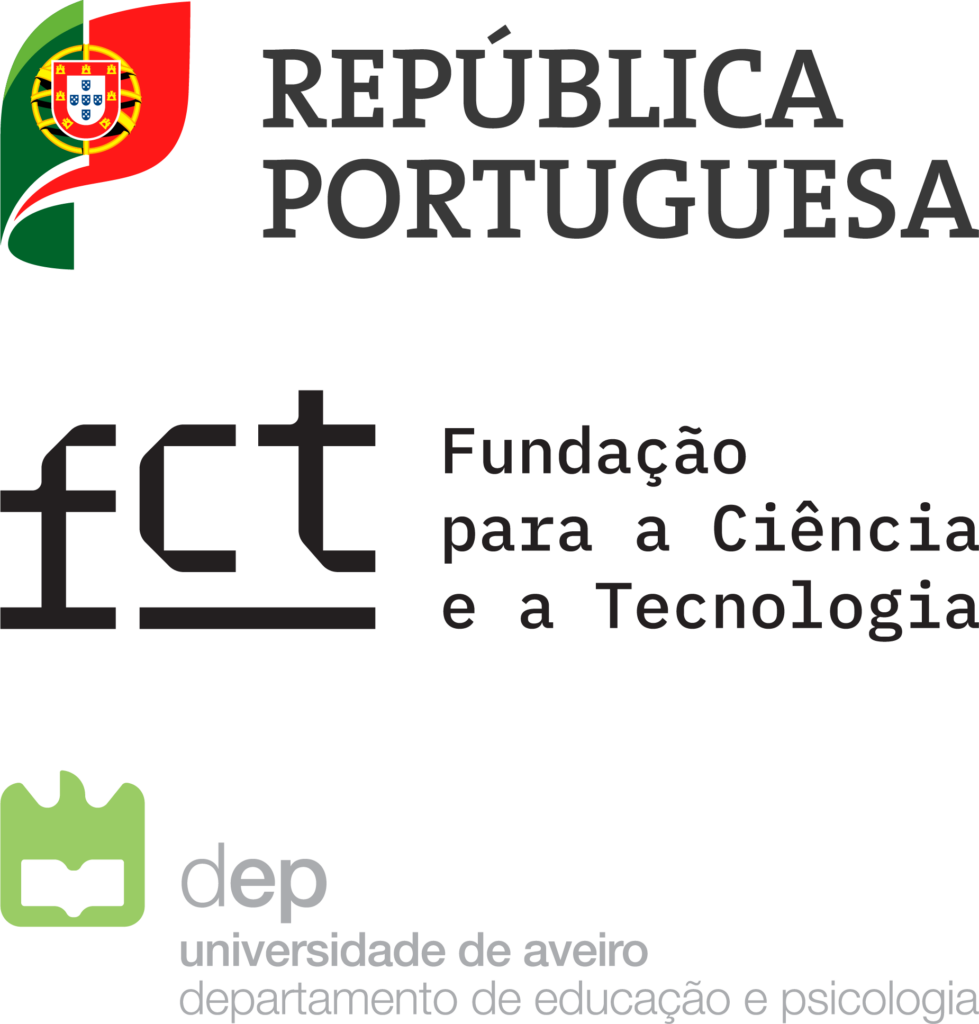Cláudia Silva, investigadora do CIDTFF, participou na 19.º edição da “European Conference on Games Based Learning“, que teve lugar em Levanger, na Noruega, entre os dias 1 e 3 de outubro de 2025.
O artigo apresentado, resultado da colaboração com Marlene Migueis (EDUCA_Lab, CIDTFF) e Filipe T. Moreira (DigiMedia), intitula-se “Co-Designing Visual Novels in Literary Education Classes: Instruments for Measuring Learner Engagement“:
Immersive didactic resources have been gaining popularity, with researchers and educators seeking to align their practices with students’ affinity for technology. Digital Game-based Learning (DGBL) has emerged as a promising learning opportunity, occupying a prominent place in the global discussion about the modernisation of education. This stems from the benefits of educational video games, namely their ability to foster learner engagement, an igniter of meaningful learning experiences. Nonetheless, their use and rigorous assessment in Humanities subjects, in interventions where secondary education students co-design didactic material, remain a gap in current investigation. There is also a tendency for research to describe standardised instruments for each subject.
As such, this study seeks to describe instruments specifically created to assess students’ level of engagement in co-designing a type of story-driven video games – Visual Novels – in the context of Literary Education. The underlying goal is to present tools that evaluate actions devoted to engaging students in a domain which is often perceived as demotivating. The resulting instruments will be used in a case study aimed at fostering Portuguese secondary education learners’ engagement in Literary Education by having them co-design educational Visual Novels inspired by a Portuguese classic literary work, “Os Maias” by Eça de Queirós.
To meet our goals, we subjected two questionnaires (pre- and post-intervention) and a class observation grid to a qualitative analysis. We considered the feedback of a multidisciplinary team of experts and implemented their suggested changes. Afterwards, we conducted a pretest of the first questionnaire with a sample of students, obtaining their feedback and calculating Cronbach’s alpha for measuring reliability. The second questionnaire, identical to the first but centred on the upcoming video game intervention was not pretested. Experts and students’ perspectives suggested a favourable appraisal of the instruments, while contributing to its improvement. Concerning the questionnaire, the Cronbach’s alpha obtained is above 0.7, implying a high level of consistency among items. By making these instruments available, we endeavour to promote more efforts of implementation of rigorously designed activities destined to the co-design of video games in the field of Humanities.
– – – – –
Referência:
Silva, C., Migueis, M. R., & Moreira, F. T. (2025). European Conference on Games Based Learning, 19(2: The Proceedings of the 19th European Conference on Games Based Learning), 769-775. https://doi.org/10.34190/ecgbl.19.2.4044





